Crysis
Although extremely dated, Crysis is still a system soul crunching benchmark. Let’s see how the carnage looks.
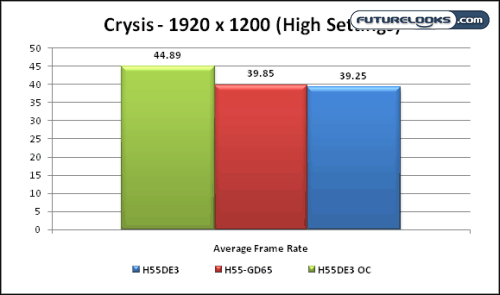
Not too shabby when testing. We’re talking only pennies compared to the more robust MSI board. Either way, expect it to keep up with whatever video card you use for gaming. Just don’t go too cheap on the video or else you’ll be kicking yourself later. Overclocking definitely helps the ASRock open up a bit more.
BioHazard 5 Benchmark
Just to mix things up, we used the BioHazard 5 benchmark which doesn’t require the game to download and run. It represents an alternative similar to titles like COD4 or Left 4 Dead 2.
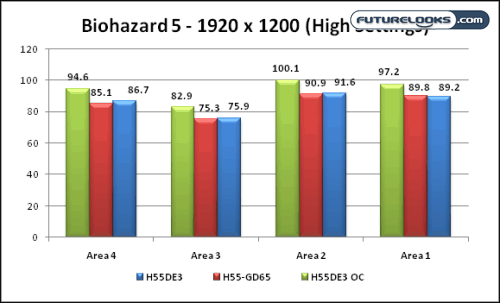
As you can see, the H55DE3 can keep up in games. No need to overclock if you’re already playing something similar. But, we included it just because the platform can.
Power Consumption
Naturally, we expected the ASRock H55DE3 to use the least amount of power simply due to its low component count. The MSI board has far more features which require more power.
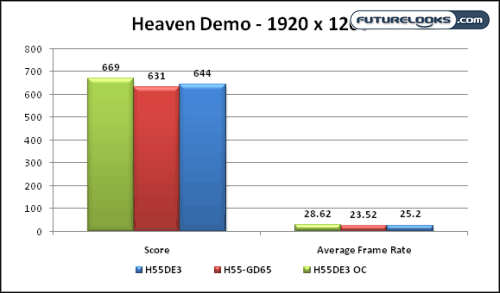
When the overclocking started, we saw the power consumption go up considerably. We suspect that the platform’s PWM circuitry might be working more overtime due to the fact it’s not a high phase count motherboard. As long as it maintains the overclock, budget folks won’t be concerned.
Right Mark Audio
VIA audio processors like the VT series don’t produce the richest audio in the world. But, they do produce some relatively clean audio at the volumes most folks realistically experience. Usually, we see their VT1828S processor on motherboards as of late which support the Clarkdale’s ability to offer effortless HD. Testing should reveal if there are any differences.
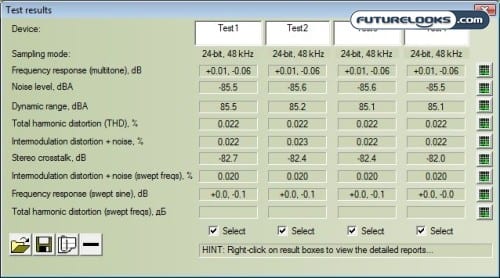
Initial testing shows there’s some performance differences in quality. Here, we have the VT1718S results after four tests looking for the best recorded results. Note the dBA versus distortion.
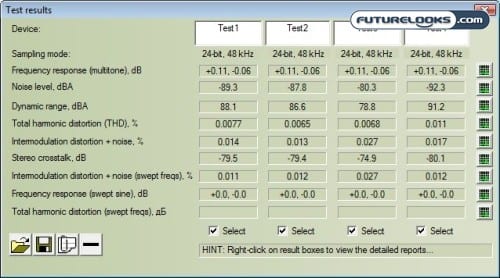
Above, we have the results from the VT1828S processor. Test 3 reveals how higher amounts of noise, or distortion effect audio performance. Ultimately, it limits the level and quality of output.
Comparing the numbers and percentages, we can tell that the VT1828S audio solution offers notably better performance over the VT1728S. What these results tell us is the same thing we experienced when wearing a good quality headset or connecting a good quality pair of speakers. We would much rather experience what the VT1828S has to offer on any future affordable ASRock motherboard than its sibling which oddly isn’t even listed on VIA’s website.
